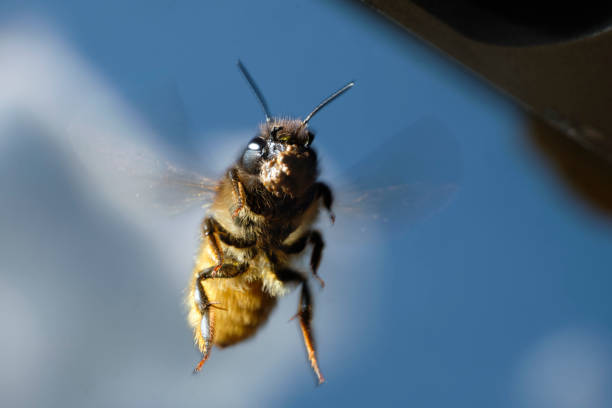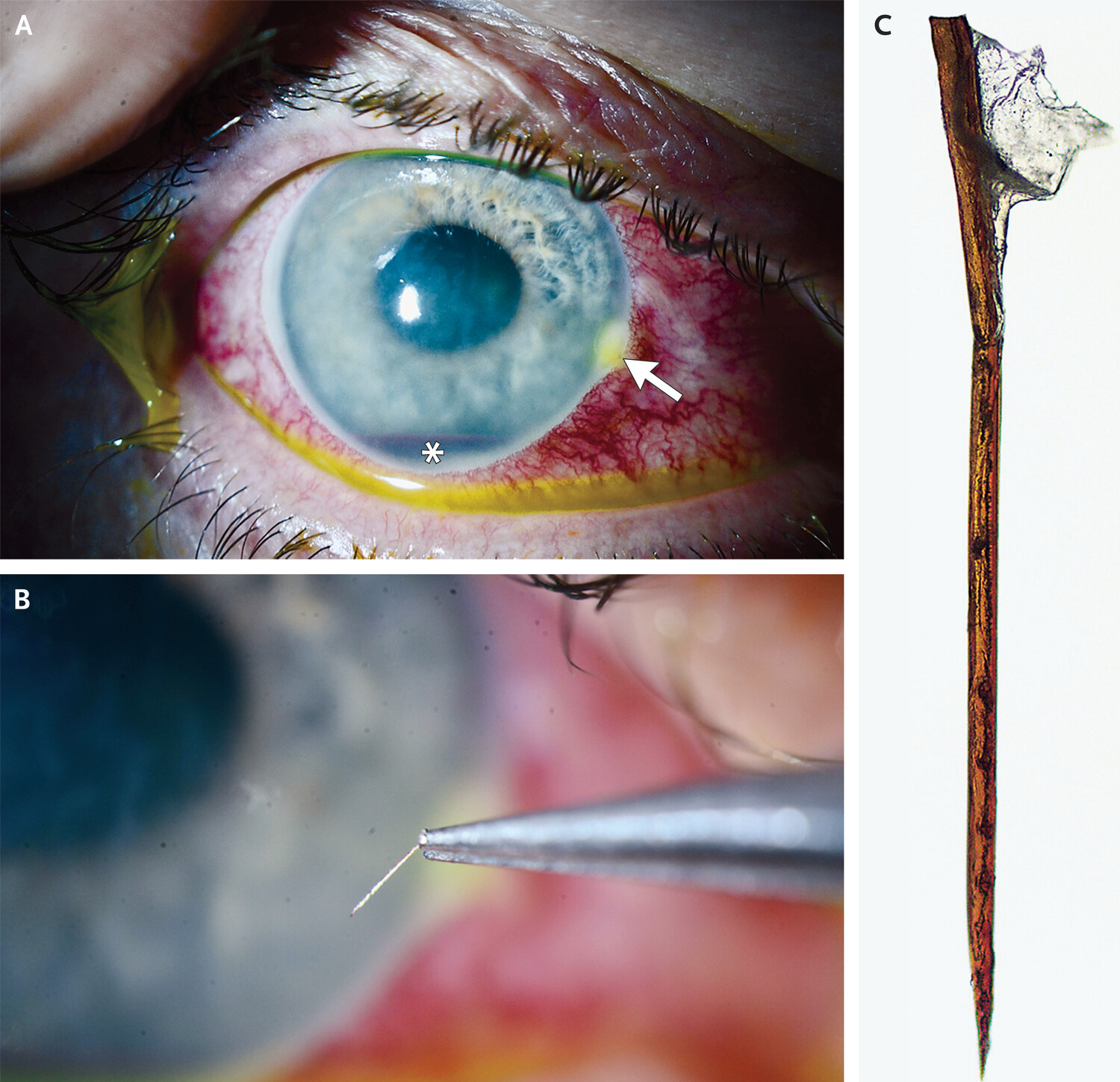MAN SUFFERS RARE BEE STING DIRECTLY TO THE EYEBALL—IT DIDN’T GO WELL
Matt Case - July 1st, 2024 - 9:01am PDT
Man Endures Rare Bee Sting Directly to the Eyeball

PHILADELPHIA — In an extraordinary medical incident likened to being struck by lightning, a man in the Philadelphia area suffered a rare bee sting directly to his eyeball, resulting in a series of complications.
The 55-year-old man sought immediate treatment in the emergency department, where doctors attempted to remove the bee's stinger from his right eye. However, they soon realized that they had not fully extracted it. Two days later, with worsening vision and pain, the man visited Wills Eye Hospital. His vision had deteriorated to the point where he could only count fingers, and his eye was swollen, inflamed, and bloodshot, with visible blood pooling at the bottom of his iris. Ophthalmologists discovered a tiny fragment of the bee's stinger still embedded at the border between his cornea and the white of his eye.

In a report published recently in the New England Journal of Medicine, ophthalmology experts Talia Shoshany and Zeba Syed stressed the importance of seeing an eye specialist if stung in the eye by a bee. "I am not surprised that the ER missed a small fragment," Shoshany explained via email. "They pulled out the majority of the stinger, but the small fragment was only able to be visualized at a slit lamp," she said, referring to the specialized microscope used in eye exams. The stinger fragment was identified using 10X or 16X magnification and a fluorescent dye, and removed with ophthalmic-specific micro-forceps.
After the stinger was fully removed, Shoshany and Syed prescribed a topical antibacterial and prednisolone eye drops to combat inflammation. At a five-month follow-up, the patient had recovered, with vision in his right eye improved to 20/25.
"Ocular bee stings are very rare," Shoshany reassured, noting that this was the first case she had encountered in her career. Although there are documented cases in scientific literature, the incidence rate remains unknown. For comparison, the National Weather Service states the odds of being struck by lightning are 1 in 15,300.
The cause of the bee sting remains unclear. The man, who worked on a property with a beehive but did not handle the insects himself, reported that he was simply walking by when several bees flew towards him and one stung him in the eye. The reason for the bees' aggression is still unknown.
